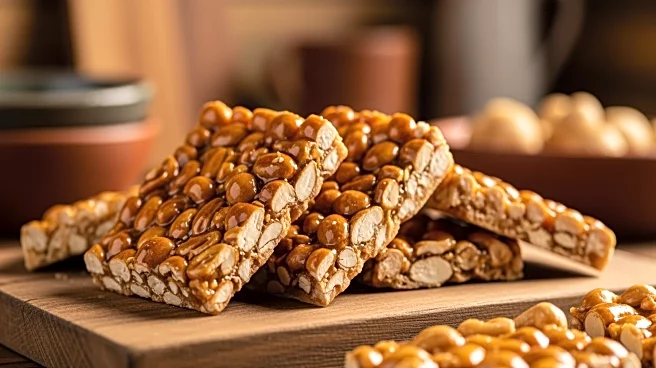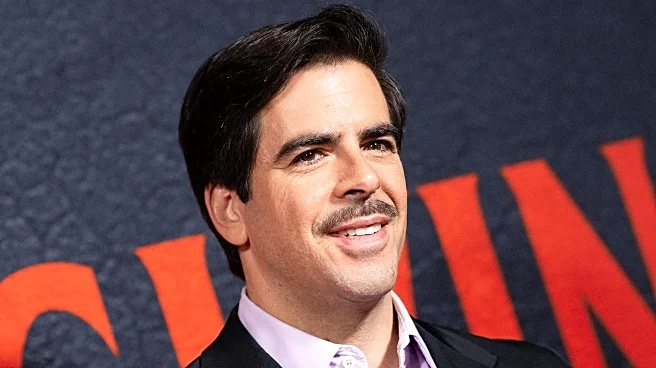What's Happening?
Qatar is positioning itself as a global fashion hub, hosting prominent figures such as Anna Wintour, Tyra Banks, and Gisele Bundchen in Doha. The country held two major events: Fashion Trust Arabia, a competition
for young designers from Arab countries, and a gala in memory of Franca Sozzani, former editor of Vogue Italia. The initiative, backed by the Qatari government and the Al Thani family, aims to promote designers from the Middle East and North Africa. This year's winners included Moroccan designer Youssef Drissi and Saudi designer Ziyad Al Bouainain. Miuccia Prada received a lifetime achievement award, highlighting Qatar's influence in the fashion industry.
Why It's Important?
Qatar's investment in fashion reflects its strategy to diversify its global image beyond sports and energy. By attracting high-profile figures and supporting regional designers, Qatar is enhancing its cultural and creative reputation. This move comes at a time when the luxury industry faces economic challenges, making Qatar's financial backing crucial for growth. The initiative also raises questions about the intersection of fashion and politics, as Qatar's image-building efforts coincide with ongoing reports of human rights issues and alleged terror financing. The events serve as a platform for young designers, but also as a tool for Qatar to project openness and cultural sophistication.
What's Next?
Qatar is likely to continue leveraging its financial resources to host similar high-profile events, further establishing itself as a key player in the global fashion industry. The involvement of major fashion figures suggests ongoing collaborations and potential expansion of the initiative. However, scrutiny over Qatar's political motives and human rights record may intensify, prompting discussions about the ethical implications of such events. Stakeholders in the fashion industry may need to navigate the balance between cultural promotion and political considerations.
Beyond the Headlines
The events in Doha highlight the complex relationship between fashion and geopolitics. Fashion is used as a tool for soft power, allowing countries like Qatar to craft narratives about identity and influence. The initiative underscores the role of fashion in shaping perceptions and fostering international connections. As fashion becomes intertwined with political agendas, designers and industry leaders may face ethical dilemmas regarding participation and endorsement. The long-term impact of Qatar's fashion strategy could redefine the industry's approach to cultural diplomacy.










